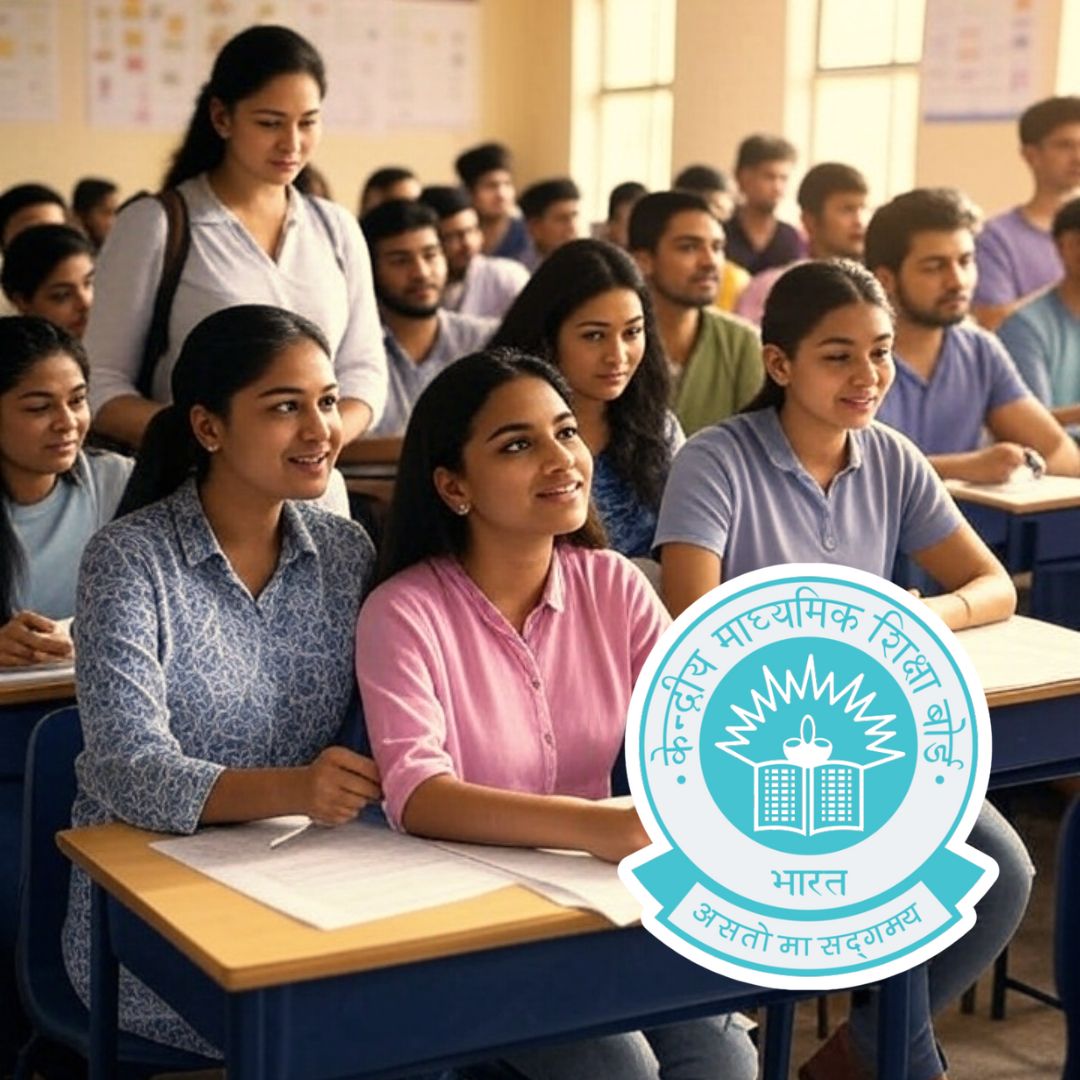The Central Board of Secondary Education (CBSE) has announced a significant reform in the Class 10 board examination process, set to begin in 2026. The board exams will now be conducted twice a year: the first phase in February will be compulsory for all students, while the second phase in May will be optional, allowing students to improve their scores. The best result from either attempt will be considered final.
This initiative aligns with the National Education Policy (NEP) 2020’s vision to reduce exam stress and provide students with greater flexibility and choice.
Officials have highlighted that the new system will benefit over 30 lakh students nationwide, including special provisions for differently-abled students, sportspersons, and students from remote or winter-bound regions.
Twice-a-Year Exams: A New Dawn for Students
CBSE Examination Controller Sanyam Bhardwaj elaborated on the details, stating, “The first exam phase is mandatory, but the second will be optional, allowing students to improve their scores in up to three subjects including science, mathematics, social science, and languages.”
The results of the first exam will be declared by April, and the second by June, with internal assessments conducted only once annually. This dual-exam system aims to alleviate the immense pressure students face during a single high-stakes exam by providing a second chance within the same academic year.
Special categories of students, such as sportspersons and those from winter-bound schools, will have the flexibility to choose which exam phase to appear in, ensuring inclusivity. Additionally, students who miss three or more subjects in the first phase will be designated as “Essential Repeat” candidates, requiring them to reappear the following year, maintaining academic standards.
Background: Responding to Student Needs and Educational Reform
This policy change is the culmination of extensive consultations between CBSE, education experts, parents, and students, reflecting widespread calls for reform. The NEP 2020 emphasises flexibility, reduced exam stress, and holistic development, which CBSE has sought to implement through this move.
The draft policy was circulated in early 2025, inviting feedback from various stakeholders until March, which helped shape the final guidelines. The decision comes amid growing concerns about the mental health impact of high-pressure exams and the need for a more student-friendly evaluation system.
By offering two exam opportunities annually, CBSE hopes to encourage continuous learning and reduce the stigma of failure, fostering a more supportive academic environment. The board is also exploring future reforms such as modular exams and dual-level papers to further modernise assessments.
The Logical Indian’s Perspective
At The Logical Indian, we applaud CBSE’s progressive approach to reforming the Class 10 board exams. This move reflects a compassionate understanding of the challenges faced by millions of students and represents a shift towards an education system that values well-being alongside academic achievement.
By offering flexibility and multiple opportunities, the board is promoting kindness, empathy, and fairness in education—values that resonate deeply with our commitment to peaceful coexistence and positive social change. However, the success of this initiative will depend on effective implementation and continued dialogue with all stakeholders.
How do you think this new examination system will influence students’ academic journeys and mental health? What further steps can educational boards take to create a more inclusive and stress-free learning environment?











